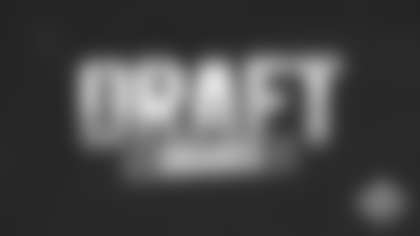Akili Smith, now an offensive coordinator and quarterbacks coach himself, is just hearing that some of the draft gurus have been comparing him to Heisman Trophy winner Cam Newton and he doesn't see it. Unless, of course, it's the one-year wonder thing.
"If they feel he's a one-year wonder, then, please, let him break in behind a veteran," Smith said this week from San Diego. "I love his game. I think he'll be a very good NFL quarterback. If he does what I didn't do and not get caught up in the clubs and the entertainment thing and he does what he's supposed to do in the offseason, he'll be fine."
Smith catches a lot of grief as one of the biggest busts in NFL history as the third pick in the 1999 NFL Draft. But it was far from his entire fault and now as one of the most candid men to emerge alive from such wreckage, his once rambunctious lifestyle is retooled and settled at age 35. Smith is back coaching at his alma mater of Lincoln High School in an effort to get the degree that allows him to rejoin head coach Jeff Tedford's staff at the University of California.
Smith worked at Berkeley last year as an administrative assistant, but in order to become a full-time coach he needs to get the degree. He has already put in a few years as the OC/quarterbacks coach on the junior-college level.
So he has watched Newton with a coach's eye.
"I was nowhere near the athlete that Cam is," Smith said this week. "He's an amazing runner with great moves. And we ran different offenses. I never ran the zone option. But I'll always believe I had as good an arm as anybody."
Nope, two different players.
Smith's point is it all gets back to what offenses they ran in college. Smith took 90 percent of his snaps from under center out of a version of the offense Bob Bratkowski brought to Cincinnati in 2001. But by then, Smith had spent two disastrous seasons in a West Coast scheme.
"With (Tedford), it was basically cut the field in half, look at one side of the field and read the safeties," Smith said. "But the West Coast is a progression offense. You have to read your progressions and you have to get rid of it quickly."
We know where that went. Head coach Bruce Coslet would stand behind Smith at practice with a stopwatch to force him not to hold it, but he did more often than not. That was if he had the time, which he didn't have much of, either. Plus, he was throwing to wideouts with even less experience than him.
But Smith believes going into a new system was the big element that got overlooked in his failure. Not only did he miss more than 20 training-camp practices because of a holdout, but he could participate in only two weeks of the spring practices because of (drum roll for irony, please), Oregon's graduation date.
"Please tell them if they're going to draft a quarterback, give him time to learn it. Don't throw him out there. And you can't if there's a holdout," Smith said. "Find out what the guy can do in his offense."
Smith has always taken some responsibility for the holdout and if Newton or Blaine Gabbert wants to listen, he'll give them some valuable top three counsel.
"My advice to them," Smith said, "is to take care of your business in the offseason. Put the time in at the facility. The off-field thing is just as important as on field."
Smith is walking the walk as he coaches, pursues the degree, spends time with his children, and does what he didn't do consistently in the NFL.
"I'm sitting here," he said, "watching basketball and working on some football stuff getting the playbook ready."
What goes around comes around, right? Smith was always more comfortable in Bratkowski's scheme, in part, because of the same number tree for routes he ran at Oregon under Tedford. But he only got two starts in the system.
It seems, though, some of the old notes have come in handy as he installs a Tedford-like scheme.
"I've got some old Cincinnati Bengals stuff I'm going to be using," Smith said.
Nope.
Akili Smith had his time and Cam Newton will have his.
Their one thing in common is they can only wonder what can happen in a year.













